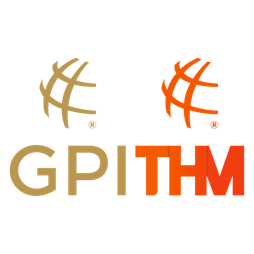February 14 2013, by Alexandre Dreyfus
Global Poker Index “suspends” two players from the system, following video evidence showing suspicious activity.
In view of Partouche 2009 incident, Jean-Paul Pasqualini and Cedric Rossi no longer eligible for inclusion in the Global Poker Index.
I bought and relaunched the Global Poker Index eight months ago because I believe that poker still has its best years ahead of it. To promote poker and help it grow, we need to make it more mainstream. I believe the rankings help turn poker into a spectator sport, which engages more fans and expands the community. This is similar to the ATP for Tennis, or the PGA for Golf.
I’m not simply a believer. I’m investing a lot of money into this goal, to make the GPI a respectable tool for promoting poker players and poker playing performance.
Recently, some information was made public about a very suspicious incident of cheating, which in poker is equivalent to fraud. We spent a lot of time analyzing the facts, checking the accuracy of the video and its sources. We also solicited the point of view of the GPI’s top 50 players. The feedback from the industry and the players has been very clear – they were in support of suspending Jean-Paul Pasqualini and Cedric Rossi from inclusion in the Global Poker Index.
We debated it internally for the last ten days, ever since we learned of it, like everyone else. It was, and remains, a very complicated decision to make.
What does it mean to be suspended from the Global Poker Index?
Their names will no longer appear in the rankings (France, Europe and Worldwide), and the suspension is clearly stated on their player profile page.
By taking this action, we are not claiming that we know they cheated – this is up to the casinos and the overseeing regulatory bodies to decide. What we are convinced of is that there wasn’t fairness at the table. Unfair behavior will not be promoted via the Global Poker Index. It goes against everything I’m trying to do to promote poker, players and events.
Risk of opening Pandora’s Box?
I realize that it can be a slippery slope, but that is why we have acted very cautiously and in accordance with a set of standards that we are holding ourselves to. The first is that, in order to suspend anyone, there must be evidence to support that decision. It cannot be based on rumors – those are easy to come by, evidence isn’t.
What we are advocating is fairness at the table, not necessarily off-table “ethics.” I remember the Ethics Committee, or something like that, from the now defunct Epic Poker League. I don’t want to go there. I cannot impose my own ethics upon others. I won’t judge a person’s lifestyle. The Global Poker Index is meant to rank poker players on their performance. If the performance is distorted or compromised, then we act. At this stage, we can’t do much else. I was pleased that this decision was supported by so many of the people I spoke to, because it means that none of us want to see this behavior on table.
How are poker players protected via these actions?
This may be the first time you see this figure: in 2012, poker players around the globe spent over $900 million in total tournament buy-ins. This makes live poker almost a billion dollar industry. Obviously, the majority of this money goes into prize pools and is then distributed to the winners, so you can expect that almost the same amount of money was won in 2012.
This figure is 14 times what it was in 2002 (total worldwide buy-ins: $62m), and the number of new players has grown very quickly, especially in the last 6 years. But the industry has been slow to adapt to this, and has not really embraced the usage of new information technology to profile players.
The point is, when poker players spend a lot of money, they have every reason to expect protection. When a player buys into a tournament for $1k, $5k or $10k, he wants to be sure the casino, or the entity hosting that tournament, is doing its best to provide the fairest conditions to play. This is made possible by well-trained tournament directors, dealers, floor and staff. But it shouldn’t end there. There exists no international database or tool to help prevent a proven cheater or unfair player from, say, Europe, from sitting next to me in a tournament in Las Vegas, or the other way around. In my opinion, that is where the industry fails today. The industry doesn’t do everything it could be doing to protect its paying customers from players who have been known to play unfairly or create unfair conditions at the table.
I realize this is an ambitious goal, but I think that the Global Poker Index can help provide some of the tools needed to discourage cheaters and protect players all over the world. We have a database of 232,000 players, and information that can be shared among the casinos to help monitor playing behavior.
How do I foresee this happening?
We’re only in the first phases of this, and we are consulting the industry (players, casinos, regulators, lawyers), but we’d like to create a Player Trust Rating that could be easily shared among casinos. This information will be respected with sensitive privacy measures. Casinos will be able to decide how to act based on it.
I don’t think many players would agree to play in a poker room that they knew was aware of a high-risk player but allowed him to play anyway. I understand that casinos are generally well-equipped to look out for their own interests, but I think it is time for the poker community to also utilize the tools they have at their disposal to protect fairness and their own interests. Poker has historically suffered from a bad image because of a widespread cheating culture. We’ve come a long way in recent years to get away from that, but unfortunately it still happens, and probably always will. That’s why it is time to fight it.
It will take time to develop the measures we have in mind, but we can do it, especially with support from the players. They are the ones who pay and play, and they have to be more involved in these issues.
What is the next step?
We want – and need – feedback from the players and others qualified authorities in the industry, on how to maximize the efficiency of these tools. It will not always be easy, and I’m sure people are going to disagree about the right way to do it. We’re prepared for that. When you want to move and shake some lines, it is never easy. But there is a global consensus for a fair poker environment where people can play their best game. Whatever it takes to realize that goal must be dared.
The Global Poker Index will set up a large meeting during this year’s WSOP to interact with players from all over the world, as well as poker event organizers, whose support and participation in this will be critical. We will figure out how we can make this work, with one clear objective in mind: the players’ interests. That is what must be protected from now on, if we want more players at the tables, all over the world.
Related articles
About the author



